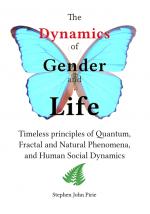I recently attended a philosophy class focused on the ancient Greek philosophers, such as Plato, and others.
I was surprised by the relatively shallow depth of the ideas discussed, when viewed through a quantum holodynamic perspective.
I came to the conclusion, rightly or wrongly, that unless the philosopher is post-quantum, they're not really going to add much insight into life.
And by insight, I mean the deeply shocking stuff that comes by way of studying and reflecting on the implications of quantum theory and experiment.
As Neils Bohr quipped, "Anyone who is not shocked by quantum theory has not understood it." When listening to, and participating in discussions based on pre-quantum philosophy, I've never been "shocked" by the ideas presented.
In fact, I think it was the extraordinary implications of quantum research that led Nobel Laureate Max Born to conclude, "I am now convinced that theoretical physics is actual philosophy".
The quantum-perspective, in particular, the idea that the future is influencing the present (through nonlocal interactions), is for those who reflect on that sufficiently, genuinely shocking. But it's also immensely reassuring to realise we can "feel forward" in time, and be alert to beneficial, life-affirming pathways to wellbeing, business solutions, and betterment. As Terence McKenna explained
“Nothing is unannounced. If you are paying attention, stuff comes down the pike. First a little wave, then a medium wave, then the tsunami.”
The idea that things can be and are (as experimentally revealed) in two or more places at the same time, is also "shocking". Not simply vibrating quickly back and forth between two or more locations, but actually in those locations, simultaneously. This was covered to some extent in the film "What the bleep" but in my opinion, rather poorly explained. What would have been more insightful would have been to say "imagine as you walk through one of two doors, that "YOU" -- the multi-dimensional root of "you", are walking through both at the same time". In other words, yes, the multiverse is real, and we're in the time-line that we're in because of our particular beliefs, emotions and so forth.
Which, when considered in depth, is shocking, even disturbing.1
There have been films and popular culture that explore this dynamic to life. One that comes to mind is the "Sliding doors" film starring Gwyneth Paltrow. But most who viewed that film probably left it in the realm of "science fiction".
Yet, according to quite a few physicists the the multiverse interpretation (of the single-photon double-slit experiment) is the least assumptive, the interpretation that most aligns with the quantum facts.
As physicist Dr David Deutsch explained, in reference to the single-photon double-slit experiment):
Single-particle interference phenomena unequivocally rule out the possibility that the tangible universe around us is all that exists.2
All of which raises immense implications, especially in the areas of health and wellbeing, success ... and ... basically every facet of one's life.
